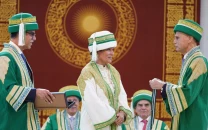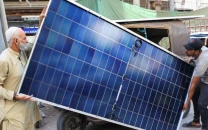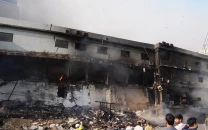Appeasing the Baloch
The genuine grievances of the Baloch people must be addressed, their apprehensions on CPEC should be allayed

The writer is the author of The Economic Development of Balochistan (2004)
Balochistan has been facing an insurgency-like situation for the last decade. After more than 10 years of violence, the self-exiled Baloch separatist leader ultimately realised that the issue could only be resolved through peace negotiations. Now, it is up to the government and the security establishment to engage the separatist leaders in a dialogue process and effectively pursue the policy of appeasement in the restive province. Sadly, our authorities tend not to wake up from deep slumber to address an issue until a lot of blood is shed. Balochistan was deliberately kept backward and underdeveloped during British rulers and this policy has been adopted by successive governments in Islamabad, neglecting the development of the province.
The least developed province of the country has paid heavy costs in terms of collateral damage, economic slowdown, social instability for the operation launched in 2005 under the government of Pervez Musharraf. Quelling an insurgency is a zero-sum game. The two-sided gory game of death continues unabated in the insurgency-hit province. On the one hand, separatists are targeting people indiscriminately, and on the other, there are those who have suffered immensely in the most brutal of manners. Balochistan is witnessing its fifth insurgency. Every insurgency took the province a decade back, socioeconomically. Presently, the province is far behind the other developed regions of the country. Socioeconomic indicators put it in the category of the least-developed and most backward province.
Rich in natural resources, Balochistan is situated at the crossroads of South Asia, Central Asia and the Middle East. According to one estimate, out of the country’s estimated 25.1 trillion cubic feet of proven gas reserves, 19 trillion are located in Balochistan. The Sui Gas field in the Bugti tribal area is still the single largest and the pioneering gas-producing field in the country. The strategically-located Gwadar port has the potential to emerge as the mother port of the region. It is ironic that a geo-strategically located province with world class gold mines and tremendous energy resources is stuck in medieval times with donkey-fans still in use in the hot summer months in Jaffarabad and Dera Murad Jamali areas. People still travel on camels in Jhal Magsi district and burn wood and coal for fire.
Education can be instrumental in combating backwardness in the province as it is the only tool that can produce the required human capital to develop the province’s vast natural resources. Job vacancies often remain unfilled due to lack of skilled, qualified and trained personnel in the province. This is why the unemployment and underemployment rates in Balochistan are higher than the national rates for these indicators. A lethal combination of militancy and poverty continues to frustrate any improvements in the education sector.
Dialogue is welcome at a time when billions of dollars are being spent on the province by China for the China-Pakistan Economic Corridor (CPEC) and the province is set to emerge as a new economic frontier for the country. No mega project will, however, bear fruit for the national economy given the state of security in the province. The law-enforcement agencies should make way for political dialogue. The authorities must stop repeating the mantra of ‘all is well’ in Balochistan and conduct serious and productive parleys with Baloch leaders. The genuine grievances of the Baloch people must be addressed and their apprehensions vis-a-vis mega development projects underway in the province should be allayed. Locals must be the primary beneficiaries of the ongoing development schemes.
Merely announcing an economic or financial package for Balochistan will not appease its people. The development process must bring a positive change in the socioeconomic and political milieu of the province. If the people feel socially alienated, economically frustrated and politically discriminated, then infrastructure development alone cannot change the current state of affairs.
Published in The Express Tribune, September 2nd, 2015.
Like Opinion & Editorial on Facebook, follow @ETOpEd on Twitter to receive all updates on all our daily pieces.











1733130350-0/Untitled-design-(76)1733130350-0-208x130.webp)



COMMENTS
Comments are moderated and generally will be posted if they are on-topic and not abusive.
For more information, please see our Comments FAQ